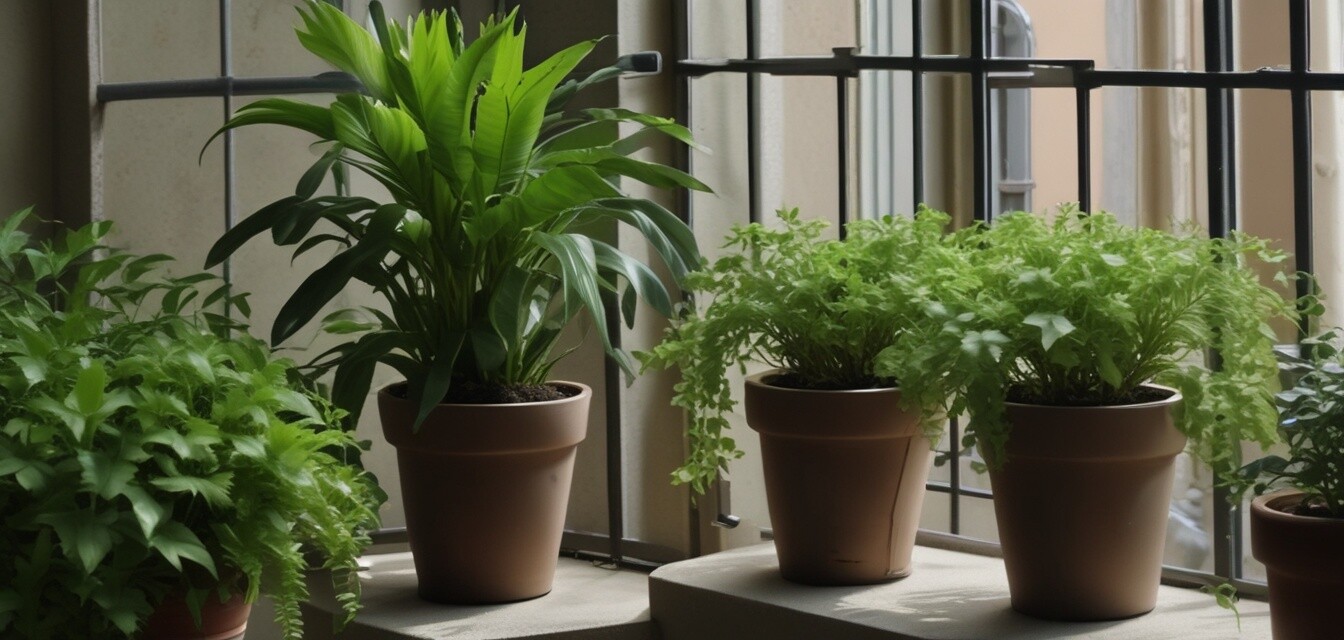
How to Deal with Common Houseplant Diseases
Key Takeaways
- Understanding common houseplant diseases is crucial for maintaining plant health.
- Proper watering and sunlight exposure play vital roles in disease prevention.
- Regular inspection of your plants allows for early detection of diseases.
- Utilizing effective treatment options can save your plants and enhance their growth.
Houseplants add aesthetic value and fresh air to your living space, especially in urban balcony gardens. Yet, dealing with common houseplant diseases can be challenging for beginners and seasoned gardeners alike. Knowing how to identify issues, as well as employing correct treatment methods, ensures that your plants remain healthy and vibrant.
Understanding Common Houseplant Diseases
Houseplants, like any living organism, can suffer from diseases that could threaten their health. Fungi, bacteria, and pests are the primary culprits behind these diseases. Here are some common types:
| Disease Type | Symptoms | Possible Cause |
|---|---|---|
| Leaf Spot | Dark, water-soaked spots on leaves | Fungal infections, over-watering |
| Powdery Mildew | White, powdery substance on leaves | High humidity, poor air circulation |
| Root Rot | Wilting, yellowing leaves, foul smell from soil | Over-watering, poor drainage |
| Fungal Wilt | Leaves yellowing and drooping | Soil-borne fungi |
| Mealybugs | White, cottony masses on stems and leaves | Pest infestation |
Identifying Disease Symptoms
Early detection is key to preventing the spread of diseases to other plants. Regularly inspect your houseplants for any unusual changes or signs. Here are some tips to help you identify symptoms:
- Check for discoloration or wilting of leaves.
- Look for any unusual spots or growths on the foliage.
- Observe the soil’s moisture level and smell for any foul odors.
- Inspect the undersides of leaves for pests, particularly mealybugs and aphids.
Treatment Options
Once diseases are identified, taking immediate action can save your plants from further detriment. Below are common treatment options:
Natural Remedies
- Neem Oil: A natural pesticide that helps eliminate various pests and prevents fungal growth.
- Soap Solution: A simple mixture of mild soap and water can eliminate pests without harming the plant.
- Cinnamon: Acts as a natural fungicide, especially effective against root rot.
Chemical Treatments
- Fungicides: Use specific fungicides designed to treat certain fungal diseases.
- Pesticides: Target insect infestations effectively with insecticides, but ensure they are suitable for household use.
Preventive Measures
Prevention is always better than cure. Here are essential practices to maintain plant health and prevent diseases:
- Proper Watering: Water less frequently but ensure the soil can drain adequately to avoid root rot.
- Optimal Light Conditions: Position your plants to receive adequate sunlight – too little can make them susceptible to diseases.
- Good Soil Quality: Use high-quality, well-draining soil for better growth and disease resistance.
- Regular Maintenance: Remove dead or yellowing leaves, and keep the plant area clean to eliminate potential disease spores.
Final Thoughts
By understanding common houseplant diseases, taking proactive measures, and employing the right treatment options, you can successfully cultivate healthy plants in your urban balcony garden. Remember to regularly monitor your plants, and instead of being reactive, become proactive in preventing plant diseases.
Beginner's Tips
- Start with hardier plants that are more resistant to disease.
- Ensure your pots have drainage holes to prevent water accumulation.
- Familiarize yourself with your specific plants’ needs for light, water, and nutrients.
- Join online communities or forums to share experiences and tips with fellow urban gardeners.
Pros
- Improves overall aesthetic appeal of your living space.
- Well-cared plants can boost your mood and productivity.
- Creates cleaner air in urban environments.
Cons
- Requires consistent maintenance and attention.
- Risk of diseases that can spread quickly among plants.
- Possible financial cost if chemicals or new plants need to be purchased.
For further tips on maintaining your urban garden, visit our Gardening Tips section, which offers practical advice tailored for compact spaces.
For more information on choosing the right plants for your space, check out our Balcony & House Plants category. And don’t forget to explore our other categories for Balcony Accessories and Gardening Tools for additional gardening solutions.